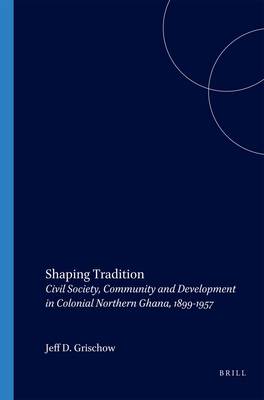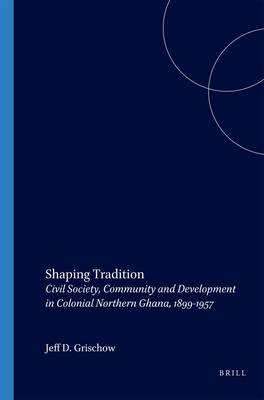
- Afhalen na 1 uur in een winkel met voorraad
- Gratis thuislevering in België vanaf € 30
- Ruim aanbod met 7 miljoen producten
- Afhalen na 1 uur in een winkel met voorraad
- Gratis thuislevering in België vanaf € 30
- Ruim aanbod met 7 miljoen producten
Zoeken
Shaping Tradition
Civil Society, Community and Development in Colonial Northern Ghana, 1899-1957
Jeff Grischow
€ 148,45
+ 296 punten
Omschrijving
Using Northern Ghana as a case study, this book challenges the invocation of civil society as a tool for building community in the name of development. Far from equating civil society with community, colonial officials used the doctrine of community against African civil society. For colonial officers, civil society represented the corruption of authentic development, which could be avoided only by protecting traditional peasant communities in the face of economic transformation. The book charts this colonial program, from the creation of "native states" in the early twentieth century to an ambitious agricultural mechanisation scheme in the late 1940s. In its challenge to current writing on civil society, the study offers an important contribution to African history and development studies.
Specificaties
Betrokkenen
- Auteur(s):
- Uitgeverij:
Inhoud
- Aantal bladzijden:
- 264
- Taal:
- Engels
- Reeks:
- Reeksnummer:
- nr. 14
Eigenschappen
- Productcode (EAN):
- 9789004152434
- Verschijningsdatum:
- 17/10/2006
- Uitvoering:
- Paperback
- Formaat:
- Trade paperback (VS)
- Afmetingen:
- 161 mm x 240 mm
- Gewicht:
- 508 g

Alleen bij Standaard Boekhandel
+ 296 punten op je klantenkaart van Standaard Boekhandel
Beoordelingen
We publiceren alleen reviews die voldoen aan de voorwaarden voor reviews. Bekijk onze voorwaarden voor reviews.








